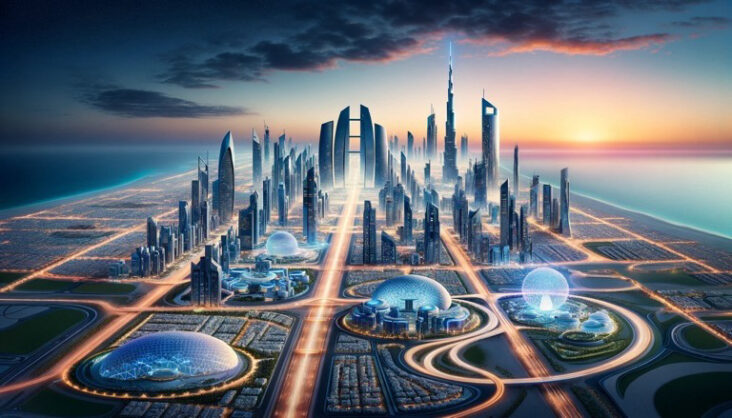Abu Dhabi and Dubai, the two flagship cities of the UAE, present distinct yet complementary visions for the future, particularly for smart entrepreneurs looking to invest. This comparative article will explore the unique attributes of each city, their future outlook, and how they cater to different types of investments.
### Abu Dhabi: The Emerging Innovation Hub
**Strategic Diversification**: Abu Dhabi, the capital of the UAE, is strategically diversifying its economy beyond oil. The city is investing heavily in sectors like renewable energy, technology, and education. The establishment of Masdar City, a global hub for clean technology and renewable energy, is a testament to Abu Dhabi’s commitment to sustainable innovation.
**Cultural and Educational Investments**: With institutions like NYU Abu Dhabi and the Louvre Abu Dhabi, the city is becoming a cultural and educational hub. This environment is conducive to businesses that align with intellectual and cultural advancements.

**Investment in Technology and Startups**: Abu Dhabi’s focus on technology is evident through initiatives like Hub71, a tech ecosystem offering support and funding to startups. This is an enticing factor for entrepreneurs in the tech sector.
### Dubai: The Established Commercial Powerhouse
**Global Business Hub**: Dubai is renowned as a global business and trade hub. Its world-class infrastructure, strategic geographic location, and status as a global city make it an ideal spot for international trade and business.
**Tourism and Real Estate**: Dubai’s economy is bolstered by robust tourism and real estate sectors. The city’s ambitious architectural projects and luxury tourism appeal to businesses in these industries.
**Ease of Doing Business**: Dubai has long been attractive for its business-friendly environment, characterized by tax benefits, international Free Zones, and a straightforward process for business setup.
### Comparative Outlook
1. **Sectoral Strengths**: Abu Dhabi’s focus is more on sustainable technology and cultural advancement, making it ideal for businesses in renewable energy, tech startups, and cultural enterprises. Dubai, with its established commercial landscape, is more suited for international trade, real estate, and luxury tourism ventures.
2. **Business Environment**: While both cities offer a business-friendly environment, Dubai has a slight edge in terms of established global connections and ease of doing business, particularly for international entrepreneurs.
3. **Future Outlook**:
– Abu Dhabi is rapidly emerging as a leader in sustainable and tech-driven sectors, offering long-term growth potential in these areas.
– Dubai continues to strengthen its position as a global business hub, with ongoing investments in infrastructure and tourism.
4. **Investment Climate**: Abu Dhabi might appeal more to entrepreneurs who are interested in long-term, sustainable investments aligned with global trends like renewable energy. Dubai, on the other hand, offers immediate access to a bustling, diverse, and established commercial environment.
### Conclusion
For smart entrepreneurs, the choice between Abu Dhabi and Dubai depends on the nature of their business and long-term vision. Abu Dhabi is carving a niche in sustainable, tech-driven industries, while Dubai continues to excel as a global commercial hub. Both cities, with their unique strengths and shared vision of progress, make the UAE a dynamic region for investment. The decision ultimately lies in aligning one’s business goals with the distinct opportunities each city offers.







